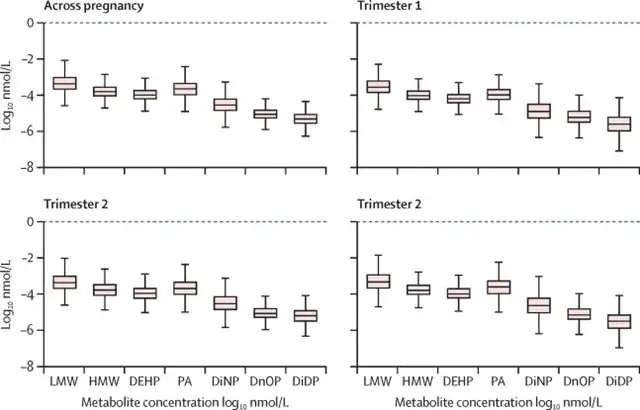1 in 10 Premature Births Linked to Common Plastic Chemicals
- Normal Liver Cells Found to Promote Cancer Metastasis to the Liver
- Nearly 80% Complete Remission: Breakthrough in ADC Anti-Tumor Treatment
- Vaccination Against Common Diseases May Prevent Dementia!
- New Alzheimer’s Disease (AD) Diagnosis and Staging Criteria
- Breakthrough in Alzheimer’s Disease: New Nasal Spray Halts Cognitive Decline by Targeting Toxic Protein
- Can the Tap Water at the Paris Olympics be Drunk Directly?
1 in 10 Premature Births Linked to Common Plastic Chemicals
- Should China be held legally responsible for the US’s $18 trillion COVID losses?
- CT Radiation Exposure Linked to Blood Cancer in Children and Adolescents
- FDA has mandated a top-level black box warning for all marketed CAR-T therapies
- Can people with high blood pressure eat peanuts?
- What is the difference between dopamine and dobutamine?
- How long can the patient live after heart stent surgery?
1 in 10 Premature Births Linked to Common Plastic Chemicals
A new study led by researchers from the Grossman School of Medicine at New York University reveals that exposure to the common plastic chemical phthalates is estimated to be a major factor causing premature birth in 1 out of 10 premature infants.
For about a century, a group of chemicals called phthalates has been used in various household products, primarily as a method to soften plastics. This chemical has become so ubiquitous that almost everyone in the Western world likely has some trace of phthalates in their bodies.
In recent years, scientists have begun linking exposure to phthalates with adverse health conditions, from findings linking them to increased risk of childhood cancer to decreased fertility. A survey in 2021 estimated that 100,000 premature deaths in the United States could be associated with exposure to phthalates.
This new study, published in The Lancet Planetary Health journal, builds on a decade of research, indicating a connection between premature birth and phthalates. Over 5,000 mothers participated in this study, providing urine samples at three different time points during pregnancy. The study tested levels of 20 different metabolites.
Unlike previous studies examining this association, this new research investigated various types of phthalates in the most diverse group of mothers studied to date. This enabled researchers to uncover new differences between different types of phthalates.
The study found that the most commonly used phthalate, DEHP (di-2-ethylhexyl phthalate), was closely associated with premature birth. Mothers with the highest levels of DEHP in their urine were about 50% more likely to have premature births compared to those with the lowest levels.

However, perhaps most concerning, the study found that several chemicals recently used as substitutes for DEHP are associated with higher rates of premature birth. Researchers believe that the rise in premature birth rates in the United States over the past decade is related to the shift from DEHP to these alternatives due to safety concerns regarding DEHP.
The researchers wrote in the study report, “Patterns of association suggest that DEHP substitutes are drivers of the increase in preterm birth. This finding is deeply concerning as DiNP, DiDP, and 1,2-cyclohexane dicarboxylic acid diisononyl ester are replacing DEHP in food packaging.”
Lead author of the study, Leonardo Trasande, stated that the findings should prompt strong calls to regulatory agencies. His research suggests that there are safer production alternatives to phthalates, but due to higher costs, companies often avoid these alternatives. Consequently, companies end up tweaking compounds slightly to circumvent regulations targeting problematic chemicals.
Trasande said, “These results suggest the need to regulate phthalates as a class rather than attempting to address one problem at a time. Otherwise, in a few years, investigators are likely to find similar research results on the next set of chemicals used as substitutes.”
This new study is published in The Lancet – Planetary Health journal.
1 in 10 Premature Births Linked to Common Plastic Chemicals
(source:internet, reference only)
Disclaimer of medicaltrend.org
Important Note: The information provided is for informational purposes only and should not be considered as medical advice.



